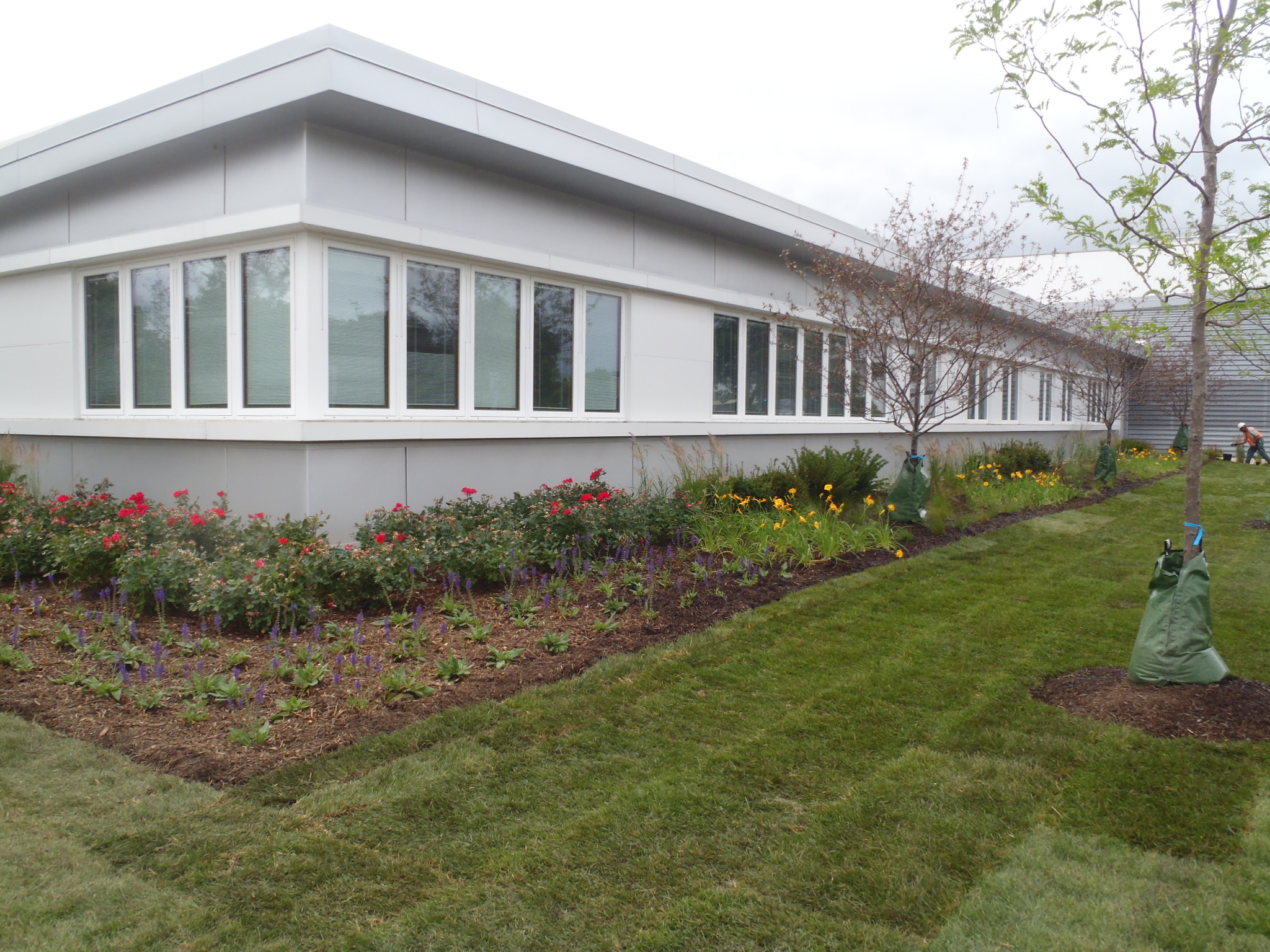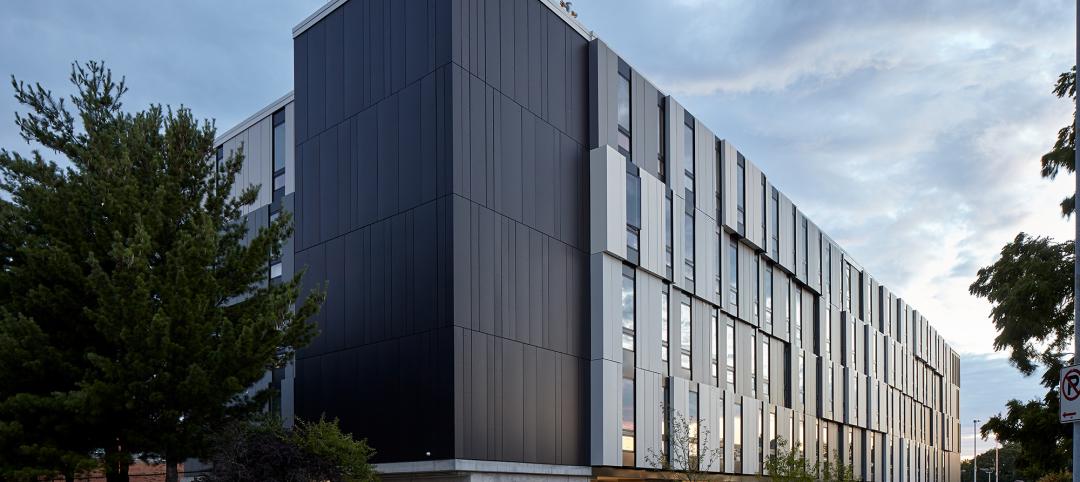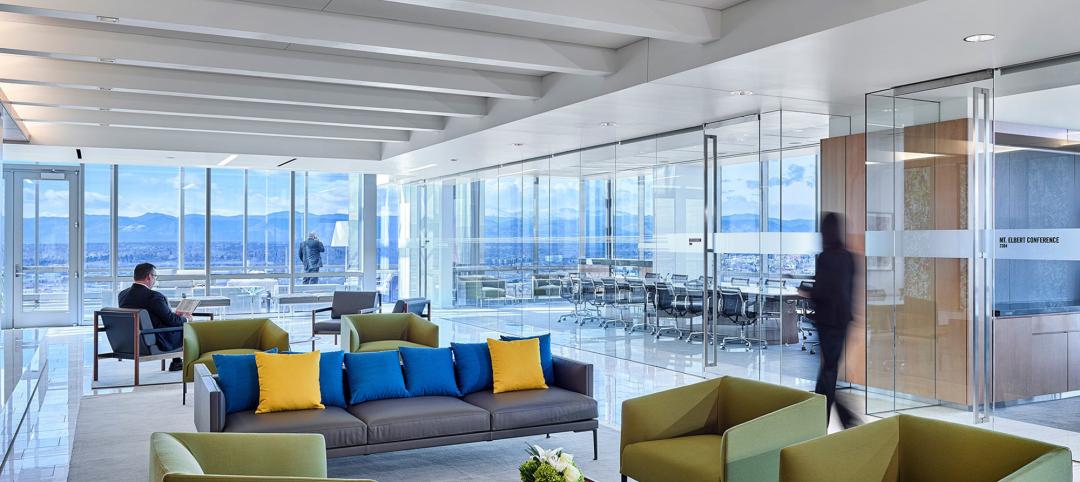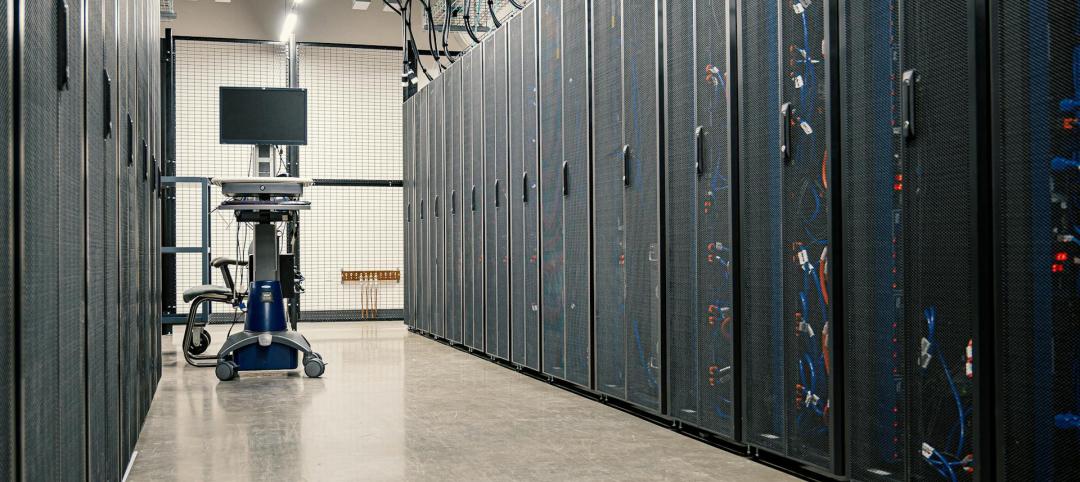The U.S. Green Building Council awarded the Joliet Junior College (JJC) Facility Services Building a LEED New Construction 2009 Gold certification – making the Facility Services Building the first of its kind on a higher education campus to receive this level of certification.
Designed by Legat Architects and built by Gilbane, the Facility Services Building’s new mechanical and electrical systems resulted in a 42% reduction in energy use and an annual savings of approximately 37% in operating costs.
Gilbane oversaw the procurement, installation and commissioning of all the LEED systems, working with contractors to ensure that they used LEED-compliant materials and submitting the documentation for all of the LEED construction-related points. The team also worked with JJC to lead a significant construction waste recycling effort.
Sustainable elements of the building include:
- Geothermal HVAC system to reduce heating and cooling loads
- Reflective roof surface to reduce heat gain
- Solar heat collectors tied to outside air intake to minimize the amount of energy used to heat the inside of the building
- Use of LED lighting in all areas of the building
- Motion sensors for lighting in occupied spaces
- Operable, high-efficiency windows to improve ventilation and bring in fresh air
- More than 75% of construction waste diverted from landfills
- Use of recycled and locally sourced materials during construction
- Low-VOC paints, adhesives, and sealants used in all spaces of the building
JJC’s Facility Services Building is part of a $220 million master plan aimed at transforming the college’s approach to sustainability and efficiency. The 42,500-square-foot facility replaces several scattered temporary buildings that previously housed the custodial, maintenance, planning/construction and roads/grounds staff at JJC. BD+C
Related Stories
Curtain Wall | Aug 15, 2024
7 steps to investigating curtain wall leaks
It is common for significant curtain wall leakage to involve multiple variables. Therefore, a comprehensive multi-faceted investigation is required to determine the origin of leakage, according to building enclosure consultants Richard Aeck and John A. Rudisill with Rimkus.
MFPRO+ News | Aug 14, 2024
Report outlines how Atlanta can collaborate with private sector to spur more housing construction
A report by an Urban Land Institute’s Advisory Services panel, commissioned by the city’s housing authority, Atlanta Housing (AH), offered ways the city could collaborate with developers to spur more housing construction.
Adaptive Reuse | Aug 14, 2024
KPF unveils design for repositioning of Norman Foster’s 8 Canada Square tower in London
8 Canada Square, a Norman Foster-designed office building that’s currently the global headquarters of HSBC Holdings, will have large sections of its façade removed to create landscaped terraces. The project, designed by KPF, will be the world’s largest transformation of an office tower into a sustainable mixed-use building.
Sustainability | Aug 14, 2024
World’s first TRUE Zero Waste for Construction-certified public project delivered in Calif.
The Contra Costa County Administration Building in Martinez, Calif., is the world’s first public project to achieve the zero-waste-focused TRUE Gold certification for construction. The TRUE Certification for Construction program, administered by Green Business Certification Inc. (GBCI), recognizes projects that achieve exceptional levels of waste reduction, reuse, and recycling.
Modular Building | Aug 13, 2024
Strategies for attainable housing design with modular construction
Urban, market-rate housing that lower-income workers can actually afford is one of our country’s biggest needs. For multifamily designers, this challenge presents several opportunities for creating housing that workers can afford on their salaries.
University Buildings | Aug 12, 2024
Planning for growing computer science programs
Driven by emerging AI developments and digital transformation in the business world, university computer science programs are projected to grow by nearly 15% by 2030.
Energy Efficiency | Aug 9, 2024
Artificial intelligence could help reduce energy consumption by as much as 40% by 2050
Artificial intelligence could help U.S. buildings to significantly reduce energy consumption and carbon emissions, according to a paper by researchers at the Lawrence Berkeley National Laboratory.
Sponsored | Healthcare Facilities | Aug 8, 2024
U.S. healthcare building sector trends and innovations for 2024-2025
As new medicines, treatment regimens, and clinical protocols radically alter the medical world, facilities and building environments in which they take form are similarly evolving rapidly. Innovations and trends related to products, materials, assemblies, and building systems for the U.S. healthcare building sector have opened new avenues for better care delivery. Discussions with leading healthcare architecture, engineering, and construction (AEC) firms and owners-operators offer insights into some of the most promising directions. This course is worth 1.0 AIA/HSW learning unit.
Office Buildings | Aug 8, 2024
6 design trends for the legal workplace
Law firms differ from many professional organizations in their need for private offices to meet confidentiality with clients and write and review legal documents in quiet, focused environments
Data Centers | Aug 8, 2024
Global edge data center market to cross $300 billion by 2026, says JLL
Technological megatrends, including IoT and generative AI, will require computing power to be closer to data generation and consumption, fueling growth of edge IT infrastructure, according to a new JLL report.

















